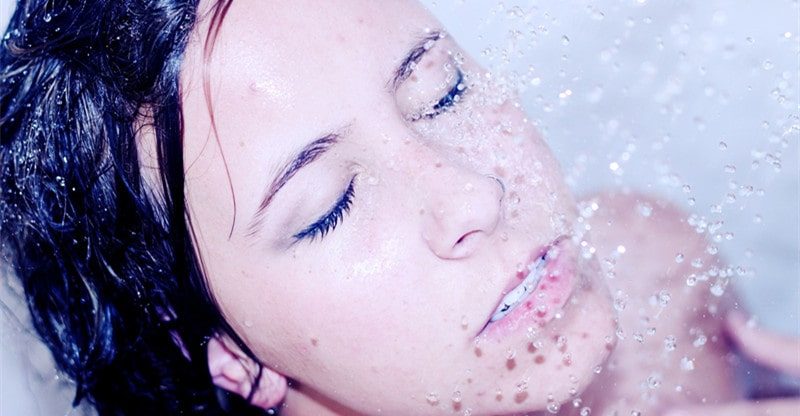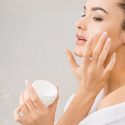How Water Quality Affects Skin Health
Healthy skincare products can help you solve issues such as acne, eczema, or aging. However, these products are only as good as the quality of your water. Water quality can affect the condition of your skin and the effectiveness of your skincare routine.
Can water harm your skin?
Protecting Your Skin From the Environment
Before addressing water specifically, if you want to have youthful, glowing skin, there are some important steps you should take. Everyone should protect their skin from the environment.
- While being outside is good for your health, it’s important to stay safe in the sun. Reduce exposure by using safe sunscreen, protective clothing such as hats and long sleeves, and remaining in the shade as much as possible.
- Use safe, natural products that are free of harsh chemicals that can contribute to aging.
- Regularly wash your face to clear the day’s dirt.
Though all these steps will help, you can still be exposed to skin damage from your water source.
Tap Water May Be Harming Your Skin
Everyday tap water, unfortunately, can be harmful to your skin. Let’s discuss those issues.
Toxins in Your Water
Water sources today are often contaminated with skin-damaging chemicals. For example, public tap water is cleaned with added chemicals such as chlorine or chloramine. These can lead to eczema.
Just like your gut’s microbiome, there is a layer of microbes on your skin that keep it healthy. And just like your gut, a healthy balance of “good” bacteria keeps your skin protected from harm. There is no research right now on whether the chlorine used to treat tap water is safe for your skin’s microbiome.
Additionally, tap water has been found to contain chemicals such as chromium 6, a carcinogenic heavy metal, and pesticides. Tap water may also contain unhealthy bacteria that can cause an infection or allergic reaction.
Hard and Soft Water
You may have been told that you have hard water. This means that your water contains excessive minerals. Some of these can harm your skin just like they can harm your hardware or appliances.
Not all minerals are bad for your skin. However, some, like calcium and magnesium, can clog your pores. Over time, they can also break down collagen and accelerate your skin’s aging process.
Dr. Justine Hextall, a dermatologist with The Harley Medical Group, states that hard water can leave a soap residue on your skin when you wash, making it dry or irritated. “This can leave skin sensitive and reactive, it can also flare inflammatory skin conditions such as eczema and rosacea.”
On the other hand, soft water is not bad for your skin. Soft water is better at removing soap completely, allowing the natural oils in your skin to thrive. This will help you reduce both the effects of aging and common skin irritations, such as dermatitis or rosacea.
Water and pH
Tap water can also harm your skin if its alkaline content is too high. A safe and healthy pH should be around 5, on a scale from 1 to 10. You can buy a test kit to check your water. High alkaline content is linked with hard water, resulting in the issues we discussed above.
Healthy Water Options
With all these problems with tap water, is there any such thing as healthy water? Of course, there is!
Seaside Exposure
When you live closer to nature, like in a home on the beach, you benefit from the air. Ocean air may be good for you because it contains small amounts of seawater particles such as iodine, salt, and other trace minerals. Breathing seaside air can be healthy for both your skin and your immune system!
Alternatives to Tap Water
Another option is to avoid using tap water to wash your face. You can buy distilled water or use milk if you are not sensitive to it. Just use a tiny bit as it can get pricey!
Cleaning Your Tap Water
The best solution to get clean water into your skin regimen is to purify the water in your home. There are lots of choices, including purification or reverse osmosis.
While installing whole home water purification systems is the most desirable choice to protect your skin at all times, it can be very costly. Instead, you can install a water purifier for your most-used sink or in your refrigerator. These solutions will detox your drinking water and provide clean, balanced water for your skincare routine.
Making Wise Choices for a More Sustainable Life
Purifying your water is just one part of a healthy and sustainable lifestyle — and arguably, the most important. However, there are some simple and sustainable swaps for your home that can safeguard the health of your skin, including:
- Using natural and sustainable toiletries, beauty products, and skincare solutions.
- Reducing waste by buying clothes that last. You should also buy organic cotton when possible.
- Eliminating harmful chemicals in your cleaning products, especially laundry detergent.
Skin health is impacted by the quality of your water, as well as other harmful toxins in and around your home. Purifying your water sources and using products without harsh chemicals can free your skin from irritations, dryness, and rashes. For smooth, glowing skin use these tips to care for the largest organ in your body.



